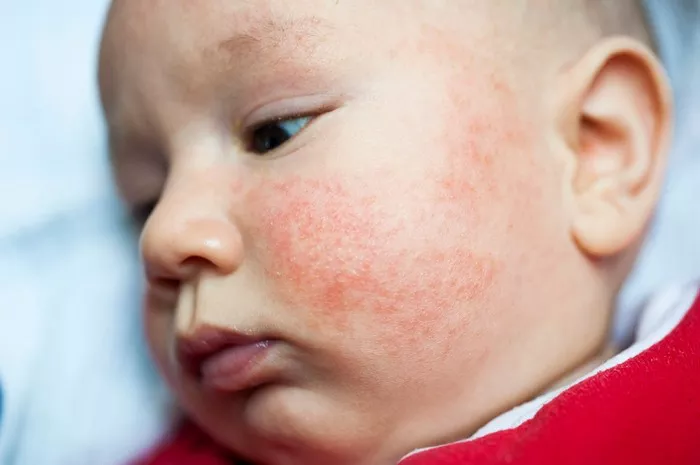Eczema, also known as atopic dermatitis, is a chronic inflammatory skin condition characterized by red, itchy, and inflamed skin. While eczema affects people of all ages, it can be particularly challenging for individuals with severe cases. The relentless itching and discomfort can significantly impact quality of life, making effective treatment essential. Fortunately, numerous options are available to manage severe eczema and alleviate symptoms, allowing individuals to lead more comfortable lives.
Understanding Severe Eczema
Before delving into treatment options, it’s crucial to understand the nature of severe eczema. Unlike milder forms of the condition, severe eczema often requires more aggressive intervention to control symptoms effectively. Individuals with severe eczema may experience frequent flare-ups, intense itching, widespread inflammation, and skin thickening (lichenification). These symptoms can significantly impair daily activities, disturb sleep, and cause emotional distress.
1. Topical Treatments
Topical treatments are a cornerstone of eczema management, particularly for localized symptoms. For severe eczema, physicians often prescribe potent topical corticosteroids to reduce inflammation and itching. These medications should be used under medical supervision due to potential side effects such as skin thinning and systemic absorption.
In addition to corticosteroids, topical calcineurin inhibitors like tacrolimus and pimecrolimus are valuable alternatives, especially for sensitive areas such as the face and neck. These medications modulate the immune response in the skin, helping to alleviate symptoms without the side effects associated with corticosteroids.
2. Moisturizers and Emollients
Regular moisturizing is essential for managing eczema, as it helps repair the skin barrier and reduces dryness, a common trigger for flare-ups. Emollients, such as creams, ointments, and lotions, should be applied liberally and frequently to keep the skin hydrated and supple. Choosing fragrance-free and hypoallergenic formulations can minimize irritation, making them suitable for sensitive skin.
For severe eczema, thicker ointments containing ingredients like petrolatum or ceramides may provide more substantial moisture retention and protection. Additionally, incorporating moisturizers with anti-inflammatory properties, such as colloidal oatmeal or ceramides, can further soothe irritated skin and reduce inflammation.
3. Oral Medications
In cases where topical treatments alone are insufficient, oral medications may be necessary to manage severe eczema. Oral corticosteroids are sometimes prescribed for short-term use during acute flare-ups to rapidly suppress inflammation and alleviate symptoms. However, long-term use carries significant risks, including systemic side effects and rebound flare-ups upon discontinuation.
For chronic management of severe eczema, systemic immunosuppressants like cyclosporine, methotrexate, or azathioprine may be considered. These medications work by modulating the immune system to reduce inflammation throughout the body, providing relief for widespread or treatment-resistant eczema. However, they require close monitoring for potential adverse effects on organ function and immune function.
4. Biologic Therapies
In recent years, biologic therapies have revolutionized the treatment of severe eczema, offering targeted relief for individuals who do not respond to conventional treatments. Biologics are genetically engineered proteins that specifically target molecules involved in the inflammatory process, effectively suppressing the immune response responsible for eczema symptoms.
Dupilumab, the first FDA-approved biologic for moderate to severe eczema, inhibits interleukin-4 (IL-4) and interleukin-13 (IL-13), key cytokines involved in the pathogenesis of eczema. Clinical trials have demonstrated significant improvements in disease severity, itching, and quality of life for patients receiving dupilumab, making it a promising option for severe eczema management.
5. Phototherapy
Phototherapy, or light therapy, involves exposing the skin to ultraviolet (UV) light under medical supervision to reduce inflammation and itching associated with eczema. Narrowband UVB therapy is the most commonly used form of phototherapy for eczema, as it effectively suppresses the immune response in the skin without the systemic side effects of oral medications.
However, phototherapy requires regular sessions over several weeks to achieve optimal results, and long-term maintenance may be necessary to prevent relapse. Additionally, potential side effects such as sunburn, premature skin aging, and an increased risk of skin cancer underscore the importance of careful monitoring and sun protection during treatment.
6. Lifestyle Modifications
In addition to medical treatments, certain lifestyle modifications can help manage severe eczema and reduce the frequency and severity of flare-ups. Avoiding triggers such as harsh soaps, fragrances, wool clothing, and extreme temperatures can prevent exacerbation of symptoms.
Maintaining a consistent skincare routine, including gentle cleansing and moisturizing, is essential for preserving the skin barrier and preventing moisture loss. Using mild, fragrance-free products and avoiding hot baths or showers can minimize irritation and inflammation.
Moreover, managing stress through relaxation techniques, exercise, and adequate sleep can help mitigate the psychological impact of eczema and reduce the likelihood of stress-induced flare-ups. Engaging in activities that promote mindfulness and emotional well-being, such as yoga or meditation, may also be beneficial for individuals with severe eczema.
Conclusion
Severe eczema can pose significant challenges for those affected, impacting both physical comfort and emotional well-being. However, with a comprehensive treatment approach that addresses inflammation, restores the skin barrier, and minimizes triggers, individuals with severe eczema can find relief and improve their quality of life. By working closely with healthcare providers to tailor a treatment plan suited to their needs, individuals can effectively manage their condition and regain control over their skin health.

























